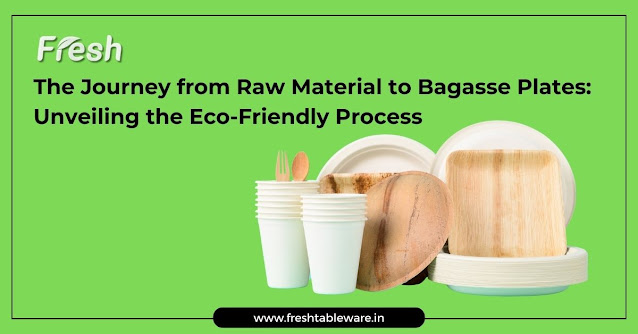Different Eco-Friendly Alternatives to Plastic Plates
Plastic plates have long been a convenient choice for various occasions due to their lightweight and disposable nature. However, the environmental impact of single-use plastic has become a significant concern, leading to a shift towards more sustainable alternatives. In this article, we will explore various eco-friendly options that can replace plastic plates, allowing us to make a positive impact on the planet while enjoying our meals guilt-free.
Biodegradable Plates:
Biodegradable plates are an excellent alternative to traditional plastic plates. Made from materials like cornstarch, sugarcane, or wheat straw, these plates decompose naturally, minimizing their impact on the environment. Biodegradable plates are sturdy enough to hold most meals, making them ideal for picnics, parties, and events.
Bamboo Plates:
Bamboo plates are another eco-friendly choice gaining popularity. Bamboo is a fast-growing and sustainable resource that does not require pesticides or fertilizers to grow. These plates are durable, lightweight, and biodegradable, making them perfect for both indoor and outdoor use. Additionally, their natural appearance adds an elegant touch to any table setting.
Palm Leaf Plates:
Palm leaf plates are crafted from fallen palm leaves, which are naturally shed by trees. The leaves are collected, cleaned, and then pressed into different shapes to create sturdy and attractive disposable plates. Palm leaf plates are biodegradable, compostable, and heat-resistant, making them a perfect alternative for serving hot and cold food items at parties and events.
Edible Plates:
For the ultimate eco-friendly experience, consider using edible plates. These plates are typically made from edible materials like rice, wheat, or corn. Once you finish your meal, you can either consume the plate or compost it, leaving behind zero waste. Edible plates are a fun and innovative way to reduce plastic waste while also providing a unique dining experience.
Stainless Steel Plates:
Stainless steel plates offer a long-lasting and reusable alternative to single-use plastic plates. They are durable, easy to clean, and can be used for both indoor and outdoor meals. Stainless steel plates are ideal for picnics, camping trips, and family gatherings, as they can withstand rough handling and are resistant to breakage.
Glass Plates:
Elegant and sophisticated, glass plates are an eco-friendly alternative to plastic plates for formal occasions or fine dining experiences. Glass is 100% recyclable, making it a sustainable choice. Though glass plates may be heavier than plastic or other alternatives, their timeless beauty and reusability make them an excellent investment in reducing waste.
Silicone Plates:
Silicone plates are a versatile and eco-friendly option that can replace plastic plates for children and adults alike. They are lightweight, unbreakable, and can withstand high temperatures, making them microwave and dishwasher safe. Silicone plates come in various vibrant colors and designs, making mealtime enjoyable for children while being gentle on the environment.
Conclusion:
Transitioning from plastic plates to eco-friendly alternatives is a crucial step in reducing plastic waste and preserving the environment for future generations. The options mentioned above, including biodegradable plates, bamboo plates, palm leaf plates, edible plates, stainless steel plates, glass plates, and silicone plates, offer a diverse range of choices of use and throw plates to suit various occasions and preferences.
By making a conscious choice to embrace these eco-friendly alternatives, we can significantly reduce our ecological footprint and contribute to a cleaner, healthier planet. So, let's bid farewell to plastic plates and welcome these sustainable options to our dining tables, ensuring a greener and more sustainable future.



Comments
Post a Comment